
What nuclear capabilities did the West and the USSR respectively reach in 1953 that made that year so significant?
It was the year when the world moved a dangerous step forward from the atom bomb to the new terrifying ‘superbomb’ – a thermonuclear explosive, based on hydrogen fusion, up to a thousand times more destructive than the bombs that destroyed Hiroshima and Nagasaki. The Americans had produced their prototype H-bomb – codenamed Ivy Mike – in November 1952; now the Russians successfully tested their own, codenamed Joe-4, in August 1953. As a result the Doomsday Clock, that measurement of how close the world is to Armageddon, was moved to two minutes to midnight (the closest it had been in seven years of Cold War).
How much did both the White House and the Kremlin know about the other’s nuclear capabilities at this time?
Not a huge amount – nowhere remotely what they know today. The Soviets had been well-informed about the American atom bomb by their Western agents, especially Klaus Fuchs, but by 1953 nearly all of them had been uncovered and arrested. As for the West, when the Iron Curtain came down in 1947 it made it very difficult for their spies to penetrate the Kremlin. It was certainly a surprise to President Dwight Eisenhower’s administration when Georgy Malenkov, the new Russian leader, announced to the Supreme Soviet that his country now had the H-bomb.
هذه القصة مأخوذة من طبعة Issue 106, 2022 من History of War.
ابدأ النسخة التجريبية المجانية من Magzter GOLD لمدة 7 أيام للوصول إلى آلاف القصص المتميزة المنسقة وأكثر من 9,000 مجلة وصحيفة.
بالفعل مشترك ? تسجيل الدخول
هذه القصة مأخوذة من طبعة Issue 106, 2022 من History of War.
ابدأ النسخة التجريبية المجانية من Magzter GOLD لمدة 7 أيام للوصول إلى آلاف القصص المتميزة المنسقة وأكثر من 9,000 مجلة وصحيفة.
بالفعل مشترك? تسجيل الدخول
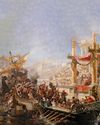
NAUMACHIA TRUTH BEHIND ROME'S GLADIATOR SEA BATTLES
In their quest for evermore novel and bloody entertainment, the Romans staged enormous naval fights on artificial lakes
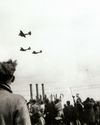
OPERATION MANNA
In late April 1945, millions of Dutch civilians were starving as Nazi retribution for the failed Operation Market Garden cut off supplies. eet as In response, Allied bombers launched a risky mission to air-drop food
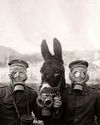
GASSING HITLER
Just a month before the end of WWI, the future Fuhrer was blinded by a British shell and invalided away from the frontline. Over a century later, has the artillery brigade that launched the fateful attack finally been identified?
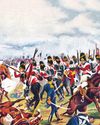
SALAMANCA
After years of largely defensive campaigning, Lieutenant General Arthur Wellesley went on the offensive against a French invasion of Andalusia
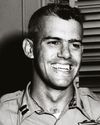
HUMBERT 'ROCKY'VERSACE
Early in the Vietnam War, a dedicated US Special Forces officer defied his merciless Viet Cong captors and inspired his fellow POWs to survive
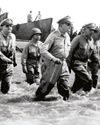
LEYTE 1944 SINKING THE RISING SUN
One of the more difficult island campaigns in WWII's Pacific Theatre saw a brutal months-long fight that exhausted Japan’s military strength
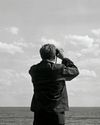
MAD DAWN
How technology transformed strategic thinking and military doctrine from the Cold War to the current day
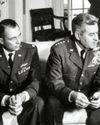
BRUSHES WITH ARMAGEDDON
Humanity came close to self-annihilation with the Cuban Missile Crisis, Broken Arrows’ and other nuclear near misses
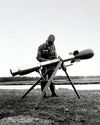
THE DEADLY RACE
How the road to peace led to an arms contest between the USA and USSR, with prototypes, proliferation and the world’s biggest bomb
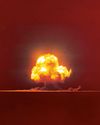
THE MANHATTAN PROJECT
Einstein, Oppenheimer and the race to beat Hitler to the bomb. How a science project in the desert helped win a war